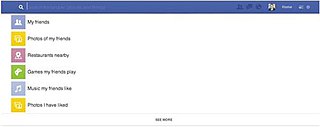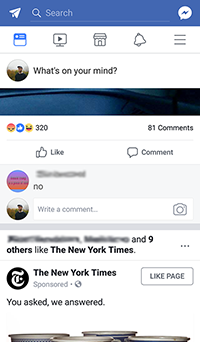Related Research Articles

AOL is an American web portal and online service provider based in New York City. It is a brand marketed by Yahoo! Inc.
Personalization consists of tailoring a service or product to accommodate specific individuals, sometimes tied to groups or segments of individuals. Personalization requires collecting data on individuals, including web browsing history, web cookies, and location. Companies and organizations use personalization to improve customer satisfaction, digital sales conversion, marketing results, branding, and improved website metrics as well as for advertising. Personalization is a key element in social media and recommender systems. Personalization affects every sector of society—work, leisure, and citizenship.
Daylife was an online publishing company which offered cloud-based tools for web publishers, marketers and developers. It provided digital media management tools and content feeds to publishers, brand marketers and developers. Daylife was founded in 2006, raised $15 million from several investors, including Getty Images, and was acquired in 2012 by NewsCred. The company was headquartered in downtown New York City.
StatSheet was an online sports content network based in Durham, North Carolina, which was powered by an automated publishing platform. The network included 345 sites - one for every Division 1 college basketball team. The company had previously announced that the network would continue to grow, and would include sites covering nearly every college and professional sport by the end of 2011.

Facebook is a social networking service originally launched as TheFacebook on February 4, 2004, before changing its name to simply Facebook in August 2005. It was founded by Mark Zuckerberg and college roommates and fellow Harvard University students, in particular Eduardo Saverin, Andrew McCollum, Dustin Moskovitz, and Chris Hughes. The website's membership was initially limited by the founders to Harvard students, but was expanded to other colleges in the Boston area, the Ivy League, and gradually most universities in the United States and Canada, corporations, and by September 2006, to everyone with a valid email address along with an age requirement of being 13 or older.

An interest graph is an online representation of the specific things in which an individual is interested. Interest graphs have perceived utility and value because of the premise that people's interests are a major aspect of who they are, forming part of their personal identity, and can be used as indicators of such things as what they might want to do or buy, where they might want to go, or who they might want to meet, follow or vote for.
Snapchat is an American multimedia instant messaging app and service developed by Snap Inc., originally Snapchat Inc. One of the principal features of Snapchat is that pictures and messages are usually only available for a short time before they become inaccessible to their recipients. The app has evolved from originally focusing on person-to-person photo sharing to presently featuring users' "Stories" of 24 hours of chronological content, along with "Discover", letting brands show ad-supported short-form content. It also allows users to store photos in a password-protected area called "my eyes only". It has also reportedly incorporated limited use of end-to-end encryption, with plans to broaden its use in the future.
140 Proof is an advertising company that uses social data from many sources in targeting relevant ads based on consumers' interests as indicated by their social activity across networks.

Facebook Graph Search was a semantic search engine that Facebook introduced in March 2013. It was designed to give answers to user natural language queries rather than a list of links. The name refers to the social graph nature of Facebook, which maps the relationships among users. The Graph Search feature combined the big data acquired from its over one billion users and external data into a search engine providing user-specific search results. In a presentation headed by Facebook CEO Mark Zuckerberg, it was announced that the Graph Search algorithm finds information from within a user's network of friends. Microsoft's Bing search engine provided additional results. In July it was made available to all users using the U.S. English version of Facebook. After being made less publicly visible starting December 2014, the original Graph Search was almost entirely deprecated in June 2019.
Diffbot is a developer of machine learning and computer vision algorithms and public APIs for extracting data from web pages / web scraping to create a knowledge base.

News360 was a personalized news aggregation app for smartphones, tablets and the web. It attempted to learn a user's interests by analyzing their interaction with news stories on the app and using semantic analysis and natural language processing to create an Interest Graph and construct a unique feed of relevant content for each user. The app claims an audience of more than 4 million users.

Optimizely is an American company that provides digital experience platform software as a service. Optimizely provides A/B testing and multivariate testing tools, website personalization, and feature toggle capabilities, as well as web content management and digital commerce.

Bottlenose.com, also known as Bottlenose, is an enterprise trend intelligence company that analyzes big data and business data to detect trends for brands. It helps Fortune 500 enterprises discover and track emerging trends that affect their brands. The company uses natural language processing, sentiment analysis, statistical algorithms, data mining, and machine learning heuristics to determine trends, and has a search engine that gathers information from social networks. KPMG Capital has invested a "substantial amount" in the company.

The like button on the social networking website Facebook was first enabled on February 9, 2009. The like button enables users to easily interact with status updates, comments, photos and videos, links shared by friends, and advertisements. Once clicked by a user, the designated content appears in the News Feeds of that user's friends, and the button also displays the number of other users who have liked the content, including a full or partial list of those users. The like button was extended to comments in June 2010. After extensive testing and years of questions from the public about whether it had an intention to incorporate a "Dislike" button, Facebook officially rolled out "Reactions" to users worldwide on February 24, 2016, letting users long-press on the like button for an option to use one of five pre-defined emotions, including "Love", "Haha", "Wow", "Sad", or "Angry". Reactions were also extended to comments in May 2017, and had a major graphical overhaul in April 2019.

EX.CO is a Disney-backed, publisher-first video technology platform. It is used by publishers to monetize video content on websites and to add interactive and media elements intended for a particular user base.
Innovid is an online advertising technology company that offers services used by advertisers and publishers for the distribution and management of digital ads. Originally launched as a video marketing platform, the company expanded its offering to include display and digital out-of-home when Herolens was acquired in 2019.

Facebook's Feed, formerly known as the News Feed, is a web feed feature for the social network. The feed is the primary system through which users are exposed to content posted on the network. Feed highlights information that includes profile changes, upcoming events, and birthdays, among other updates. Using a proprietary method, Facebook selects a handful of updates to show users every time they visit their feed, out of an average of 2,000 updates they can potentially receive. Over two billion people use Facebook every month, making the network's Feed the most viewed and most influential aspect of the news industry. The feature, introduced in 2006, was renamed "Feed" in 2022.
Taboola is a public advertising company headquartered in New York City. The CEO of Taboola is Adam Singolda, who founded the company in 2007. It provides advertisements such as "Around the Web" and "Recommended For You" boxes at the bottom of many online news articles. These sponsored links on publishers' websites send readers to the websites of advertisers and other partners. These online thumbnail grid ads are also known as chumbox ads.
Foursquare Labs Inc., commonly known as Foursquare, is a geolocation technology company and data cloud platform based in the United States. Founded by Dennis Crowley and Naveen Selvadurai in 2009, the company rose to prominence with the launch of its local search-and-discovery mobile app. The app, Foursquare City Guide, popularized the concept of real-time location sharing and checking-in.
References
- ↑ Gravity. "Gravity About". Archived from the original on February 1, 2014. Retrieved January 30, 2014.
- ↑ Mashable (January 23, 2014). "AOL Acquires Content Personalization Firm Gravity for $90 Million". Mashable . Retrieved January 30, 2014.
- 1 2 "Gravity Can Graph Your Internet Clicks For New Customer Snapshots". Forbes . Retrieved January 30, 2014.
- 1 2 "How to Attract Eyeballs to Branded Content". Adweek. May 14, 2013. Retrieved January 30, 2014.
- ↑ "Sector RoadMapTM: content personalization in 2013" (PDF). Gigacom. Archived from the original (PDF) on June 26, 2013. Retrieved January 30, 2014.
- ↑ "Gravity launches API, ushers in a personalized Web for all". PandoDaily.
- ↑ "Gravity Raises $10.6M For Content Personalization And Marketing, Round Led by GRP Partners". TechCrunch. October 2, 2012.
- ↑ publisher. "Gravity launches API, ushers in a personalized Web for all" . Retrieved January 30, 2014.
- 1 2 "Gravity Can Graph Your Internet Clicks For New Customer Snapshots". Forbes.
- ↑ "How to Attract Eyeballs to Branded Content". Adweek. May 14, 2013.